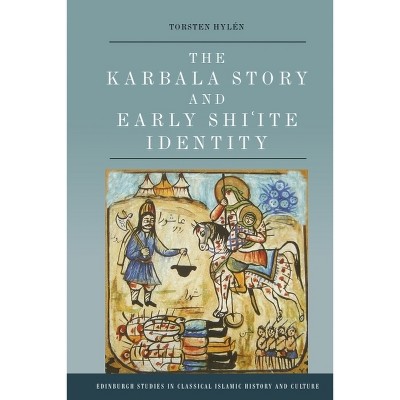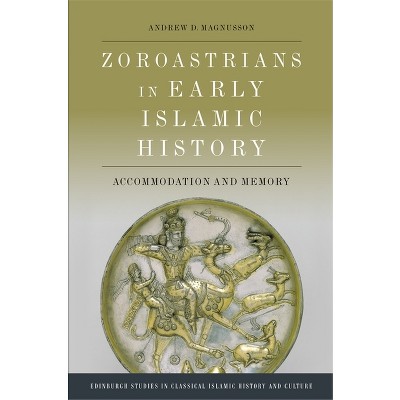Sponsored

The Kharijites in Early Islamic Historical Tradition - (Edinburgh Studies in Classical Islamic History and Culture) by Hannah-Lena Hagemann
In Stock
Sponsored
About this item
Highlights
- Why are stories told about the Khārijites?
- About the Author: Hannah-Lena Hagemann is based in the Department of Near Eastern Studies at Hamburg University, where she leads a research group on rebellion in early Islam.
- 316 Pages
- History, Middle East
- Series Name: Edinburgh Studies in Classical Islamic History and Culture
Description
About the Book
Analyses the narrative function of Khārijism in 9th- and 10th-century Islamic historiography
Book Synopsis
Why are stories told about the Khārijites? The Islamic tradition portrays Khārijism as a heretical movement of militantly pious zealots, a notion largely reiterated by what little there is of modern scholarship on the Khārijites. Hannah-Lena Hagemann moves away from the usual studies of Khārijite history 'as it really was' and instead examines its narrative function in early Islamic historiography. From the Khārijites' origins at the Battle of Ṣiffīn in 657 CE until the death of the caliph ʿAbd al-Malik b. Marwān in 705 CE, Hagemann's literary analysis provides a fresh perspective on Khārijite history and highlights the need for a serious reassessment of the historical phenomenon of Khārijism as it is currently understood in scholarship.
Review Quotes
The Kharijites in Early Islamic Historical Tradition is a welcome addition to the scholarship on early Islamic history, Islamic historiography, the Islamic literary tradition, and Islamic sects and sectarianism. Hagemann provides a comprehensive, historicized analysis of how Muslim historians in the first few centuries of Islamic history understood the Kharijites and Kharijism and, as importantly, how and why they developed and their views and disseminated them.--Christopher Anzalone, George Mason University "The Muslim World Book Review, 42:3"
[...] this book is an excellent discussion of early Arabic historiography which should be read by everyone with a serious interest in the subject. Lucid and well-informed, both established scholars and students will find interest and inspiration here.--Hugh Kennedy "Journal of Qur'anic Studies"
Hagemann's work makes a useful contribution to our understanding of the Kharijites' role in early Islamic historiography and adds to the growing body of work focusing on literary aspects of the narrative historical sources.--Steven C. Judd "Journal of the American Oriental Society"
This book is an invaluable contribution to the scholarship of early Islam: a stimulating work on the origin of the Khārijites, groups that were known in the first century of Islam for their uncompromising piety and unparalleled violence. Hagemann offers a stimulating new interpretation of the historical tradition of Khārijite history.-- "Dr Teresa Bernheimer, LMU Munich"
About the Author
Hannah-Lena Hagemann is based in the Department of Near Eastern Studies at Hamburg University, where she leads a research group on rebellion in early Islam. She is co-editor of Transregional and Regional Elites: Connecting the Early Islamic Empire (De Gruyter, 2020) and author of The Kharijites in Early Islamic Historical Tradition: Heroes and Villains (EUP, 2021)
Shipping details
Return details
Trending Non-Fiction










